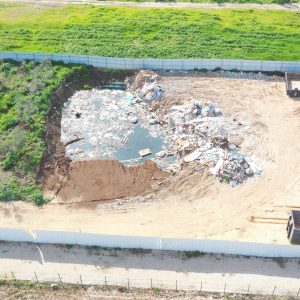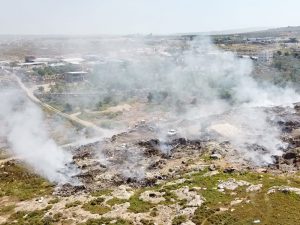Climate Action


Home » Climate Action » SDG 13 – Social Impact in New Hands
SDG 13 – Social Impact in New Hands
It’s been a couple of weeks since Israel’s new Government took office. That certainly isn’t enough time to gauge which way the SDG advancement winds will blow, but does provide a glimpse at where matters might go.
The initial headlines have caused quite a stir, to be sure. From the perspective of social impact – that’s our business here, not politics – the following new Basic Guidelines seem very much in line with that of previous Israeli governments, certainly on our core issues like reducing inequality (SDG10) and taking climate action (SDG13):
- The government will aim for social justice by developing the periphery and reducing societal gaps, while uncompromisingly combating poverty through education, employment and increased assistance to the weaker segments of the population.
- The government will act to address the problem of personal security in Arab society and to fight crime in Arab society, while encouraging education, providing adequate and appropriate solutions for young people, and investing as necessary in infrastructure in Arab localities.
- The government will work to integrate people with disabilities of any kind into societal life, while assisting in their education and employment, will take care of the basic needs of those who are unable to sustain themselves, and will act to improve the status of the elderly, the disabled and families with many children.
- The government will act to protect the environment in Israel, to improve the quality of life of the country’s residents, and to have Israel contribute to the global effort on climate and environmental issues.


While the proof is admittedly in the pudding, of course, the environmental area is an interesting one in which to examine these declarations of intent. For the moment, at least, environmental groups are reportedly pleasantly surprised by the new Government’s ambitious agenda – including: passing a climate law by mid-year; requiring ministries to act to reduce emissions in fields under their jurisdiction; removing from Haifa bay industries harmful to the environment; protecting the sea; and upgrading enforcement on polluting industries.
There also have already been indications on the ground that these intentions will be implemented. For example, the new Environmental Protection Minister announced her decision to transfer NIS 32 million to local municipalities for climate crisis preparations; and the Energy Ministry declared an allocation of NIS 130 million for the establishment of a national energy storage research institute.
On the flip side: the new Finance Minister reiterated his intention to make good on an election campaign promise and cancel a tax on single-use plastics adopted by the previous government (according to the Environmental Protection Ministry, the tax was instrumental in a 50% decrease in the use of such plastics since coming into force in 2021).
A mixed bag, yes. But there does appear to be good reason to hope that the new Government will earnestly work to advance the SDGs. We plan to follow closely.
Related articles


SDG 13 -Let’s Talk About Environmental Justice
Climate Action With all the importance of environmental protection (more on that later), a vital discussion on environmental justice is perhaps falling between the cracks.


SDG 13 -Environmental Issues Make a Comeback
Climate Action The jury is still out on whether or not coronavirus restrictions helped or harmed Israel’s environmental protection efforts. On the one hand, data


SDG 13 – Climate Action Crossroads
Climate Action Particularly when it comes to the climate crisis, nothing – besides action itself – is more important than honest self-criticism by official bodies


















